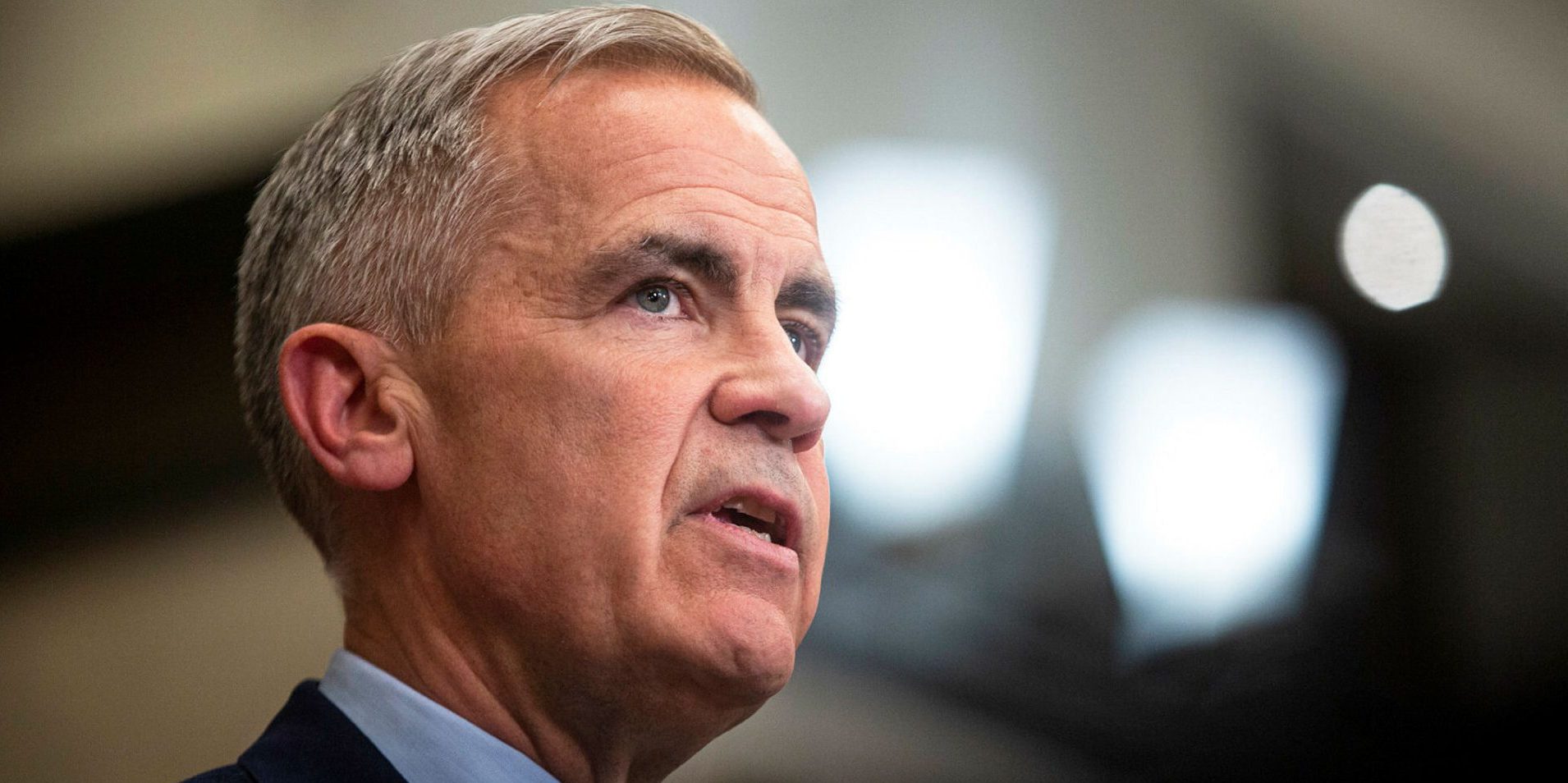Domestic innovation and canola concerns top economic development advocacy in a busy June

The tariffs and trade war with the United States helped to motivate heavy federal advocacy in June about how to develop Canada’s economy, representing the highest monthly total of communications on that subject so far this year.
“It’s an important time, given what’s happening south of the border, to talk about Buy Canada,” said Daniel Perry, director of federal affairs with the Council of Canadian Innovators (CCI). “As we’re seeing increased tariffs and concerns with the United States, we’re really seeing an increase in Buy Canada and looking to support domestic companies, and that’s what we at CCI do.”
Economic development was the top subject discussed in June in federal lobbying, and appeared in 945 communication reports, based on a search of the federal lobbyists’ registry on July 16. International trade discussions were not far behind, with that subject listed in 860 communication reports.
Discussions about the economy were also higher in June than during any other month this year so far, surpassing the previous peak of activity in February with 609 communication reports listing that subject. Advocacy about economic development in June was almost double the activity in January, March and May.
Last month was also a busy one for advocacy overall, with a total of 2,794 communication reports filed, which exceeded the totals for any previous month in 2025.
The CCI filed 22 communication reports for lobbying activity in June, of which all but one pertained to developing the economy. The organization gathered more than 20 CEOs and senior executives from technology companies to converge on Parliament Hill in June to discuss domestic innovation, and how procurement can be used as a tool to propel the growth of Canadian firms, according to a CCI statement released on June 12.
In June, CCI representatives shared a policy roadmap with designated public office holders, which outlined recommendations to scale domestic companies in areas including artificial intelligence (AI), cyber and digital infrastructure.

“Some of the [recommendations] that are most topical right now is procurement, and that relates to how the government can use their spending to support Canadian companies,” said Perry.
“So, prioritizing Canadian companies in the procurement process and ensuring that Canadian innovators are competitive in it, because … it’s a very complicated and time-consuming process to be a bidder in the government procurement process as it stands right now, and Canadian companies are sometimes at a disadvantage,” said Perry.
The CCI policy roadmap states that the procurement status quo in Canada currently leaves buyers and sellers frustrated, and reform is needed. An earlier CCI report, released on April 3, 2024, argued that government procurement failures include a long, cumbersome procurement process, a lack of in-house capacity and expertise among public servants to meaningfully engage with vendors, and a risk-averse culture that ‘steers government buyers towards the ‘safe’ choice.’”
To address these issues, the CCI roadmap included a recommendation to “embrace successful international models,” such as the Innovative Public Procurement program used by Business Finland.
CCI representatives communicated with Industry Minister Mélanie Joly (Ahuntsic-Cartierville, Que.) and Procurement Minister Joël Lightbound (Louis-Hébert, Que.) on June 3. The organization is represented on the registry in-house by its president, Benjamin Bergen, and by consultant Karen Moores of Town Advocacy.
Leading in June, in terms of advocacy related to economic development, was the Canola Council of Canada (CCC), which filed 35 communication reports for lobbying activity that month all listing that subject.
Troy Sherman, CCC’s senior director of government and industry relations, told The Hill Times that international trade—particularly as it relates to China and the U.S.—was an “absolute priority” for his organization last month due to current geopolitical tensions.
“Ninety per cent of Canadian canola is destined for export markets, and so having rules-based international trade and access to key markets remains a priority for us as an industry,” said Sherman.
China, this country’s second-largest market in the world for canola, imposed a 100-per-cent tariff on some agricultural products from Canada, including canola oil and canola meal, on March 20, which remains in effect. Beijing’s tariff was implemented as a retaliation to this country’s levies on Chinese electric vehicles, steel, and aluminum.
Canada has also been subject to an ongoing anti-dumping investigation that was launched by China in September 2024 into imports of Canadian canola seed. Anti-dumping probes are conducted when a country suspects a product is being imported at a lower price than it is sold for in the country where it is produced.
On Sept. 9, then-agriculture minister Lawrence MacAulay defended the domestic canola industry in a press release from Agriculture, where he argued this country’s canola producers “work tirelessly to deliver top-quality products,” and added that “we adhere to rules-based trade.”
To help address trade issues between the two countries, Prime Minister Mark Carney (Nepean, Ont.) and Chinese Premier Li Qiang agreed to convene a Joint Economic and Trade Commission, as part of an effort to “regularize channels of communication between Canada and China,” according to a readout from the Prime Minister’s Office released on June 5.
“Prime Minister Carney took the opportunity to raise trade irritants affecting agriculture and agri-food products, including canola and seafood, as well as other issues, with Premier Li,” says the readout.
Sherman called this a positive step forward in Sino-Canadian relations when it comes to trade.
Canada is also currently experiencing trade tensions with the U.S. as a result of a 25-per-cent tariff on all Canadian imports that do not comply with the Canada-U.S.-Mexico Agreement (CUSMA), implemented by U.S. President Donald Trump in March.
So far, canola exports have avoided the tariffs because they are CUSMA-compliant.
Sherman told The Hill Times that the CCC is monitoring Carney’s negotiations with Trump regarding the tariffs very closely. The U.S. is Canada’s largest market for canola, valued at $7.7-billion in 2024, according to the Canadian Canola Growers Association.

“We are very engaged with the government, and have been into Washington, D.C., a number of times this calendar year to talk about the importance of free and open markets and the integrated supply chain that exists within the canola industry, but also within the North American biofuels industry,” said Sherman.
“We are watching that with keen interest, and we are very hopeful that we can get to a place where trade can continue tariff-free for Canadian canola going into the United States.”
The CCC communicated with Agriculture Minister Heath MacDonald (Malpeque, P.E.I.) and Minister of International Trade Maninder Sidhu (Brampton East, Ont.) on June 10. The organization is represented on the registry in-house by its president, Chris Davison.
In a recent escalation of the trade war, Trump threatened to hike the levies to 35 per cent on Canadian imports effective Aug. 1. In a letter to Carney posted on Truth Social on July 10, Trump cited the flow of fentanyl across the border from Canada to the U.S. as a motivation for the tariffs, a claim that he has made repeatedly since March.
Trump also threatened that if Canada decides to raise its own tariffs against U.S. imports, then that increase will be added onto the planned 35 per cent charge.
Despite Trump’s repeatedly expressed concern about drugs flow, statistics from the U.S. Customs and Border Protection shows that only about 0.2 per cent of all seizures of fentanyl entering America in the 2024 fiscal year occurred at the Canadian border.
In response to Trump, Carney posted on X on July 10 that the Canadian government will continue to steadfastly defend workers and businesses during trade negotiations with the U.S. as Ottawa works toward the revised Aug. 1 deadline.
“Canada has made vital progress to stop the scourge of fentanyl in North America. We are committed to continuing to work with the United States to save lives and protect communities in both our countries,” said Carney in the post on X.
“We are building Canada strong. The federal government, provinces and territories are making significant progress in building one Canadian economy.”
Glencore Canada Corporation was third in terms of economic development lobbying last month. Glencore—which operates mines and metal processing facilities in Canada producing and recycling critical minerals including nickel, copper, zinc and cobalt—filed 17 communication reports in June related to economic development.
Sheila Risbud, Glencore’s senior vice-president of corporate affairs Canada, told The Hill Times that her group’s June lobbying activity was partly intended to reintroduce the firm to the recently-elected Liberal government. Glencore acquired a 77 per cent interest in Vancouver-based Teck Resources’ steelmaking coal business, known as Elk Valley Resources, in a deal valued at $9.5-billion, which was finalized on July 11, 2024.
Risbud said her organization was advocating in June for the federal government to “think about the midstream,” referring to smelting and processing.

“There’s been a lot of focus on getting stuff out of the ground—so, getting new mines built—but little thought to what you do with those products once they’re out of the ground, and how do you keep that value in Canada?”she said.
“That’s something that we feel transcends our company. It affects other companies across the country, but is a really important thing.”
Other advocacy priorities for Glencore in June included discussing Bill C-5, the One Canadian Economy Act—which received royal assent on June 26—and tariffs between Canada and the U.S., according to Risbud.
“The message is that we are … very integrated with the United States, and so we’d rather see an integrated North American approach, or purchase North America, especially when it comes to critical minerals,” said Risbud.
“We feel that any strong response by the Canadian government could just end up hurting Canadians more than we would like, and not really have the intended effect on Americans.”
The Hill Times
Top economic development lobbying organizations
| Organization | Communication reports |
| Canola Council of Canada | 35 |
| Council of Canadian Innovators | 21 |
| Glencore Canada Corporation | 17 |
| Industries Lassonde Inc. | 16 |
| Canadian Biogas Association | 14 |
| Aerospace Industries Association of Canada | 13 |
| Teck Resources Limited | 13 |
| Canadian Canola Growers Association | 11 |
| Cité de l’innovation circulaire et durable | 10 |
| Research Canada | 10 |
The above table shows the organizations that filed the most communication reports about economic development for lobbying activity that took place in June. Based on a search of the federal lobbyists’ registry on July 16, 2025.






 LICENSING
LICENSING PODCAST
PODCAST ALERTS
ALERTS













